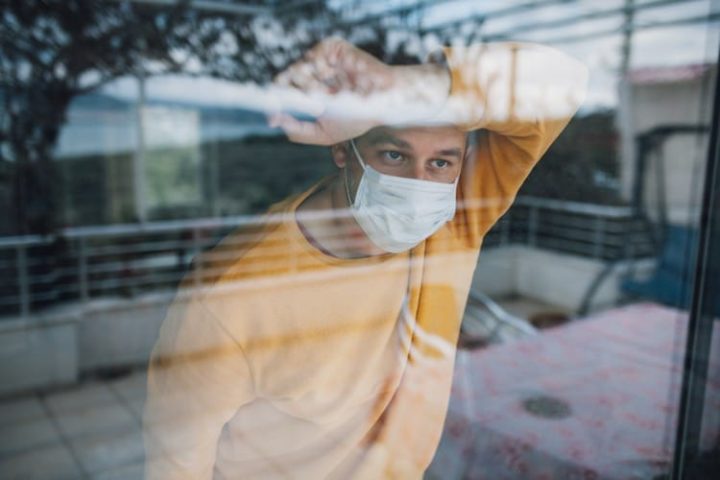
German citizens who refuse to abide by strict COVID-19 quarantine rules could be interned in camps under the rules of the country’s Disease Protection Act, which was passed by the German Bundestag last March and renewed in November.
The news comes as Germany considers new, stricter lockdown measures intended to deal with the alleged new variant of the COVID-19 virus that is said to spread more rapidly and to more strongly affect children and adolescents. The new variant of the virus seems to have begun in Great Britain and has now spread to continental Europe.
In the eastern state of Saxony, the government has announced plans to “repurpose” a portion of a refugee camp set up during 2015’s “migrant crisis” to house repeat quarantine offenders. The regional state has stressed that the facility will only be used to house individuals who have repeatedly broken quarantine rules.
The new detention centers have drawn the obvious comparisons to political prisons in former East Germany as well as Nazi-era concentration camps. Joana Cotar, a member of the populist party Alternative for Germany (AfD), accused the Saxony government of “reading too much Orwell” in response to the draconian measure.
At least three other German states — Baden-Württemberg, Brandenberg, and Schleswig-Holstein — have either completed or announced similar facilities. In Baden-Württemberg, at least two hospital rooms guarded by police have been set up for quarantine rulebreakers. Brandenberg will also use a section of a previous refugee camp, while in Schleswig-Holstein, a section of a juvenile detention facility will be used.
As noted above, Germany is currently mulling new, stronger lockdown measures as the new strain of coronavirus slowly makes its way across Europe. Chancellor Angela Merkel met with the 16 state premiers on Tuesday to discuss the issue, with current lockdown rules scheduled to expire at the end of January. Among measures being considered are calls for a stronger mask requirement, newer “sharp” lockdowns, a rapid vaccination program, and widespread gene-sequencing to detect new variants of the virus.
German authorities are hinting that upcoming lockdown measures might be quite a bit stronger. “We need to be very careful, especially of the British mutation of this virus,” said Ralph Birkhouse, the parliamentary leader of Merkel’s bloc in the Bundestag. “So, we don’t know what further measures will be necessary in coming weeks.”
Merkel has earned outrage from some by referring to the new strain of COVID-19 as the “British virus.”
Thus far, Germany has limited social contacts, closed most schools, and limited travel, especially in areas with high infection rates. But those rules aren’t uniformly enforced across the country.
At the same time, much of the German populace is getting tired of what they consider government overreach when it comes to COVID-19. Last month, there were rallies in several German cities against coronavirus dictates. In addition, a rise in anti-vaxxers has been reported across the country.
German geneticist Wolfram Henn insisted last month that people who refuse the vaccine be given the Star-of-David treatment, and be required to carry documentation of that refusal so that they could be denied access to ventilators should they contract the virus.
“Whoever wants to refuse the vaccination outright, he or she should please also carry a document with the inscription: ‘I don’t want to be vaccinated. I want to leave the protection against the disease to others! I want, if I get sick, to leave my intensive care bed and ventilator to others,’” Henn told the German newspaper Bild.
Perhaps it’s just because of events in Germany’s not-so-distant past that these new COVID detention camps sound especially frightening. Germany, after all, cannot deny its history when it comes to camps that hold dissidents. But even more frightening is how reasonable those in charge make these new restrictions sound — as if it were the most natural thing in the world for a government to simply put its boot down on citizens who dissent.




